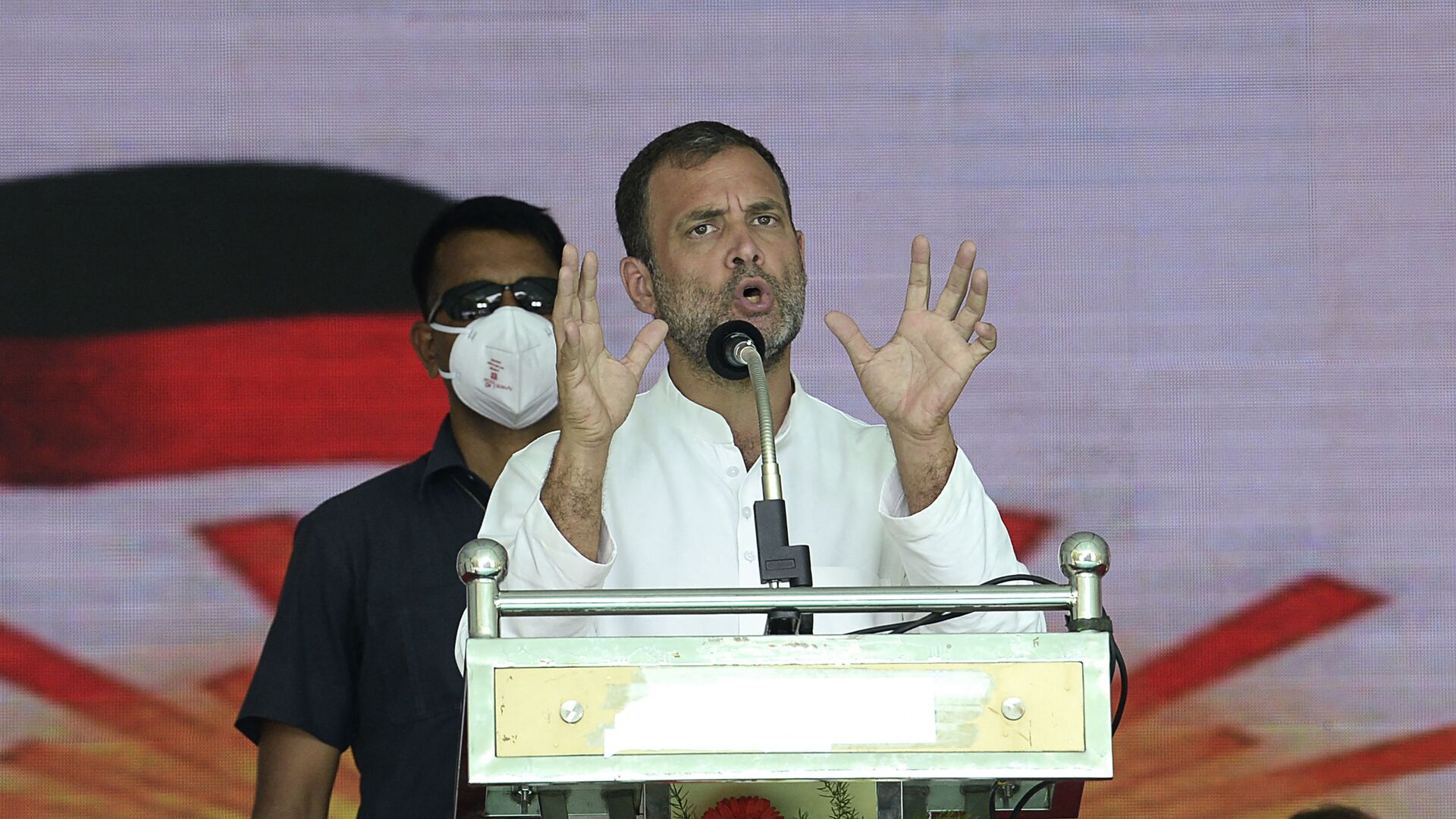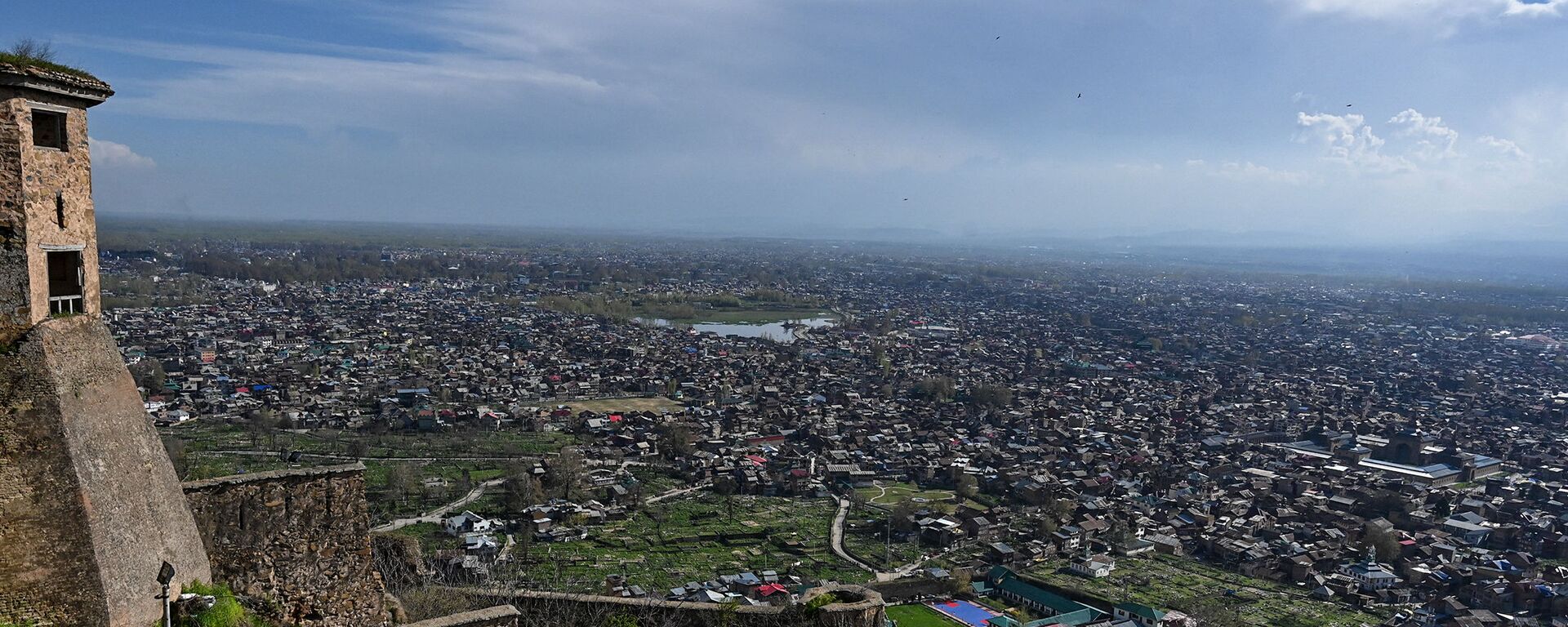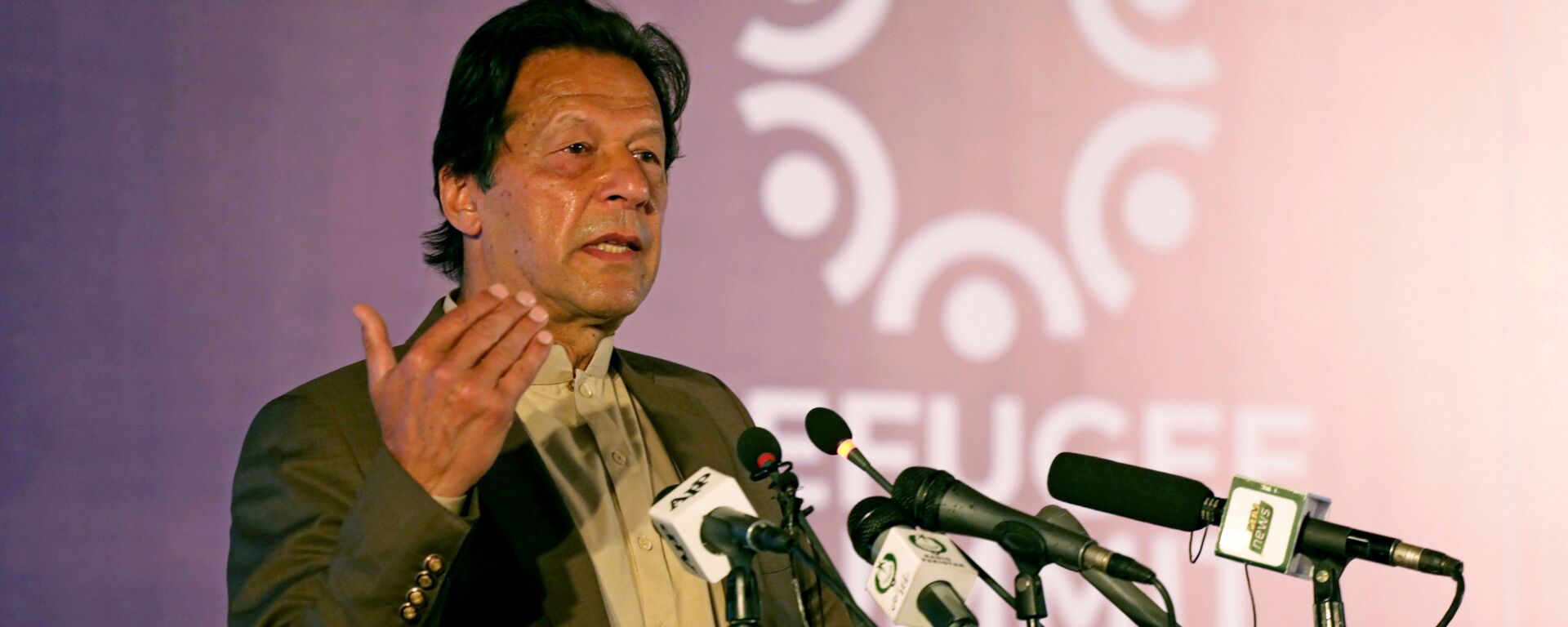https://sputnikglobe.com/20210910/insult-to-hindus-rahul-gandhi-slams-modi-for-destroying-jammu-and-kashmirs-composite-culture-1088947165.html
‘Insult to Hindus': Rahul Gandhi Slams Modi for 'Destroying' Jammu and Kashmir’s Composite Culture
‘Insult to Hindus': Rahul Gandhi Slams Modi for 'Destroying' Jammu and Kashmir’s Composite Culture
Sputnik International
In June, Prime Minister Modi invited Jammu and Kashmir's major political organisations, including the Congress, to collectively find a solution to the... 10.09.2021, Sputnik International
2021-09-10T11:27+0000
2021-09-10T11:27+0000
2022-12-08T18:02+0000
kashmir
bharatiya janata party (bjp)
narendra modi
rahul gandhi
pakistan
https://cdn1.img.sputnikglobe.com/img/07e5/05/0c/1082869769_0:0:3073:1728_1920x0_80_0_0_764aa0e9033f40307d7ec303ec731141.jpg
India's key opposition leader and Congress parliamentarian Rahul Gandhi on Friday accused Prime Minister Narendra Modi's government of "insulting Hindus" by not heeding to the teachings of the Hindu gods and "destroying" the “composite culture” of Jammu and Kashmir.He was addressing Congress party workers in Jammu, a predominantly Hindu city in an otherwise Muslim majority Jammu and Kashmir union territory.“Why are they doing that? The Hindu goddesses don't teach that," stated Gandhi, as he invoked the Hindu Goddess ‘Vaishno Devi’. He said it just a day after completing a pilgrimage to the revered famous Hindu shrine, located 10 km above Katra town at the Trikuta Mountains of Jammu. The reference was to the federal government’s August 2019 decision to revoke the semi-autonomous status of Jammu and Kashmir and bifurcate the erstwhile state into two federally administered territories — Jammu and Kashmir, and Ladakh.The Modi government, however, has justified its move by stating that the semi-autonomous status (under Article 370 of the Indian Constitution) of Jammu and Kashmir was hindering its economic and social development.The federal authorities also argue that bringing the region under Delhi’s direct control, in contrast to its semi-autonomous political status previously, has contributed to a decrease in militancy and stone-pelting incidents in the region, which borders Pakistan and China.Both Beijing and Islamabad, which have competing claims on Leh and Kashmir, have rejected the changes. India, meanwhile, has repeatedly maintained that no foreign government has a “locus standi” on the issue, which it considers to be an “internal matter.”India’s opposition political parties, however, contest the claim, viewing the decision as part of the larger Hindu nationalist policy of the federally-governing Bharatiya Janata Party (BJP) and its ideological parent, the Rashtriya Swayamsevak Sangh (RSS). Before the August 2019 decision, Jammu and Kashmir was India’s only Muslim-majority state.They also claim that the August 2019 decision, which triggered political protests, has created disaffection towards New Delhi among the inhabitants, particularly those residing in Kashmir.Local political leaders, opposing the federal decision, were placed under arrest, and internet curbs were also imposed in a bid to check protests following the revocation of the special status of Jammu and Kashmir. Gandhi claimed that the BJP's policies have led to an economic downturn in Jammu and Kashmir, and not contributed to any growth as was claimed by the government in 2019."Tourism was one of the strong points of Jammu and Kashmir's economy. But the political unrest and internet and movement curbs have led to a decrease in number of tourists visiting here since 2019," he said.The Congress leader is on a two-day visit to Jammu and Kashmir, his second visit to the federally-administered territory in a month. Last month, Gandhi paid a visit to Srinagar in the Kashmir Valley, his first trip to the volatile region since it was stripped of its semi-autonomous status.Amid criticism from the federal opposition and many Kashmiris, India’s federal home minister Amit Shah said in February this year that the political changes in the region were “temporary” and that it would get its “statehood” back.
https://sputnikglobe.com/20210805/historic-day-modi-hails-his-kashmir-move-as-imran-slams-india-for-destroying-regional-stability-1083533243.html
https://sputnikglobe.com/20200626/imran-khan-claims-atrocities-of-supremacist-modi-govt-in-jammu-and-kashmir-well-documented-by-un-1079724432.html
kashmir
pakistan
Sputnik International
feedback@sputniknews.com
+74956456601
MIA „Rossiya Segodnya“
2021
News
en_EN
Sputnik International
feedback@sputniknews.com
+74956456601
MIA „Rossiya Segodnya“
Sputnik International
feedback@sputniknews.com
+74956456601
MIA „Rossiya Segodnya“
kashmir, bharatiya janata party (bjp), narendra modi, rahul gandhi, pakistan
kashmir, bharatiya janata party (bjp), narendra modi, rahul gandhi, pakistan
‘Insult to Hindus': Rahul Gandhi Slams Modi for 'Destroying' Jammu and Kashmir’s Composite Culture
11:27 GMT 10.09.2021 (Updated: 18:02 GMT 08.12.2022) In June, Prime Minister Modi invited Jammu and Kashmir's major political organisations, including the Congress, to collectively find a solution to the political impasse in the region. The discussion was the first interaction between the federal government and Kashmiri politicians since August 2019, when the State's special status was revoked.
India's key opposition leader and Congress parliamentarian Rahul Gandhi on Friday accused Prime Minister Narendra Modi's government of "insulting Hindus" by not heeding to the teachings of the Hindu gods and "destroying" the “composite culture” of Jammu and Kashmir.
"They are trying to destroy the composite culture of Jammu and Kashmir… They are weakening you,” said the former Congress chief.
He was addressing Congress party workers in Jammu, a predominantly Hindu city in an otherwise Muslim majority Jammu and Kashmir union territory.
“Why are they doing that? The Hindu goddesses don't teach that," stated Gandhi, as he invoked the Hindu Goddess ‘Vaishno Devi’. He said it just a day after completing a pilgrimage to the revered famous Hindu shrine, located 10 km above
Katra town at the
Trikuta Mountains of Jammu.
The reference was to the federal government’s August 2019 decision to revoke the semi-autonomous status of Jammu and Kashmir and bifurcate the erstwhile state into two federally administered territories — Jammu and Kashmir, and Ladakh.
The Modi government, however, has justified its move by stating that the semi-autonomous status (under Article 370 of the Indian Constitution) of Jammu and Kashmir was hindering its economic and social development.
The federal authorities also argue that bringing the region under Delhi’s direct control, in contrast to its semi-autonomous political status previously, has contributed to a decrease in militancy and stone-pelting incidents in the region, which borders Pakistan and China.
Both Beijing and
Islamabad, which have competing claims on Leh and Kashmir, have rejected the changes. India, meanwhile, has repeatedly maintained that no foreign government has a “locus standi” on the issue, which it considers to be an “internal matter.”
India’s opposition political parties, however, contest the claim, viewing the decision as part of the larger Hindu nationalist policy of the federally-governing Bharatiya Janata Party (BJP) and its ideological parent, the Rashtriya Swayamsevak Sangh (RSS).
Before the August 2019 decision, Jammu and Kashmir was India’s only Muslim-majority state.
They also claim that the August 2019 decision, which triggered political protests, has created
disaffection towards New Delhi among the inhabitants, particularly those residing in Kashmir.
Local political leaders, opposing the federal decision, were placed under arrest, and internet curbs were also imposed in a bid to check protests following the revocation of the special status of Jammu and Kashmir.
"Jammu and Kashmir should get its statehood back," Rahul Gandhi also demanded in his address.
Gandhi claimed that the BJP's policies have led to an economic downturn in Jammu and Kashmir, and not contributed to any growth as was claimed by the government in 2019.
"Tourism was one of the strong points of Jammu and Kashmir's economy. But the political unrest and internet and movement curbs have led to a decrease in number of tourists visiting here since 2019," he said.
The Congress leader is on a two-day visit to Jammu and Kashmir, his second visit to the federally-administered territory in a month. Last month, Gandhi paid a visit to Srinagar in the Kashmir Valley, his first trip to the volatile region since it was stripped of its semi-autonomous status.
Amid criticism from the federal opposition and many Kashmiris, India’s federal home minister Amit Shah said in February this year that the political changes in the region were “temporary” and that it would get its “statehood” back.
“Jammu and Kashmir has been a top priority for the current government since it took power in 2014,” Shah said during a parliamentary debate.



